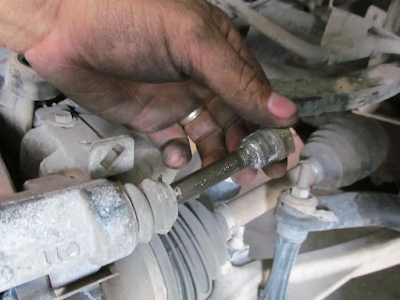Experiencing vibrations in the steering wheel when applying the brakes can be disconcerting for any driver. This issue is not only uncomfortable but can also indicate underlying problems with your vehicle that need immediate attention. Understanding the reasons behind this situation is crucial for maintaining your car’s safety and performance. t’s essential to have your vehicle inspected by a qualified company, such as those at Car Wreckers Wangara, to diagnose and address the underlying problem promptly. Here, we delve into the common causes of steering wheel vibration when braking and how to address them.
Understanding The Impact Of Ignored Vibrations
Ignoring steering wheel vibrations can lead to a host of problems. For instance, if the cause is warped brake rotors, continued use can wear out brake pads more quickly and unevenly, potentially leading to a total brake failure over time. Moreover, vibrations can also signal alignment issues, which, if not corrected, may cause uneven tire wear, reducing the tires’ lifespan and possibly leading to dangerous driving conditions.
Common Causes Of Steering Wheel Vibration
Here is the list of common causes of steering wheel vibration.
- Warped Brake Rotors – One of the most frequent culprits behind steering wheel vibration during braking is warped brake rotors. Rotors can warp due to excessive heat caused by prolonged braking or by the uneven tightening of the wheel’s lug nuts. Warped rotors result in uneven contact with the brake pads, causing the steering wheel to shake. Having your rotors checked and, if necessary, resurfaced or replaced by a professional can resolve this issue.
- Worn Out Brake Pads – Brake pads wear down over time due to the friction used to slow your car. Once they thin out to a certain extent, they can cause vibrations because they no longer make smooth, even contact with the rotors. Inspecting and replacing worn brake pads is essential not only to stop steering wheel vibration but also to ensure your vehicle can brake safely and effectively.
- Suspension Issues – The vehicle’s suspension system, including parts like tie rods, ball joints, and bushings, plays a critical role in stabilizing your car and absorbing road shock. If any component of the suspension system is damaged or worn out, it can lead to vibrations in the steering wheel, especially noticeable when braking. A thorough inspection by a mechanic can identify any suspension issues that need to be addressed.
- Imbalanced Wheels – Wheel imbalance occurs when the weight of the wheel and tyre is not evenly distributed around the axle. This can cause vibrations that may become more apparent when braking. Balancing your wheels involves adjusting the weight around the tires and can significantly reduce steering wheel vibrations.
- Stuck Brake Caliper – A stuck brake calliper can cause the brake pads to press unevenly against the rotors, leading to vibrations. This usually happens due to rust, debris, or a failure in the brake caliper piston. A mechanic can check for this issue and repair or replace the affected caliper to eliminate the vibrations.
Preventative Measures And Maintenance Tips
To avoid encountering steering wheel vibrations due to these common issues, regular vehicle maintenance is key. Here are some tips to help you maintain your vehicle’s braking system and overall health:
- Regular Brake Checks: Incorporate brake system checks into your regular vehicle maintenance routine. This includes inspecting the brake pads, rotors, and calipers for wear and tear.
- Tire Maintenance: Keep your tires properly inflated and rotate them according to the manufacturer’s recommendations. This helps ensure even wear, which can prevent imbalances that lead to vibrations.
- Suspension System Care: Have your suspension system inspected regularly, especially if you frequently drive on rough roads. Replacing worn suspension components can prevent vibrations and improve your vehicle’s handling.
- Wheel Alignment: Get your wheels aligned periodically, especially if you notice any changes in your vehicle’s handling or if it’s been involved in a collision. Proper alignment helps reduce tire wear and prevents vibrations.
- Avoid Overloading: Excess weight can strain your vehicle’s suspension and brakes, leading to premature wear. Adhere to your vehicle’s recommended weight limits.
Conclusion
Vibrations in the steering wheel when braking can stem from various issues, ranging from brake system problems to suspension or wheel balance issues. Ignoring these signs can lead to more severe and costly repairs down the line, not to mention compromise your safety on the road. If you notice your steering wheel vibrating when braking, it’s advisable to have your vehicle inspected by a professional as soon as possible. Regular maintenance and timely repairs are key to ensuring your car remains safe, comfortable, and reliable.
Reference URL - https://www.wangaracarwreckers.com.au/why-is-my-steering-wheel-vibrating-when-i-brake/

No comments:
Post a Comment